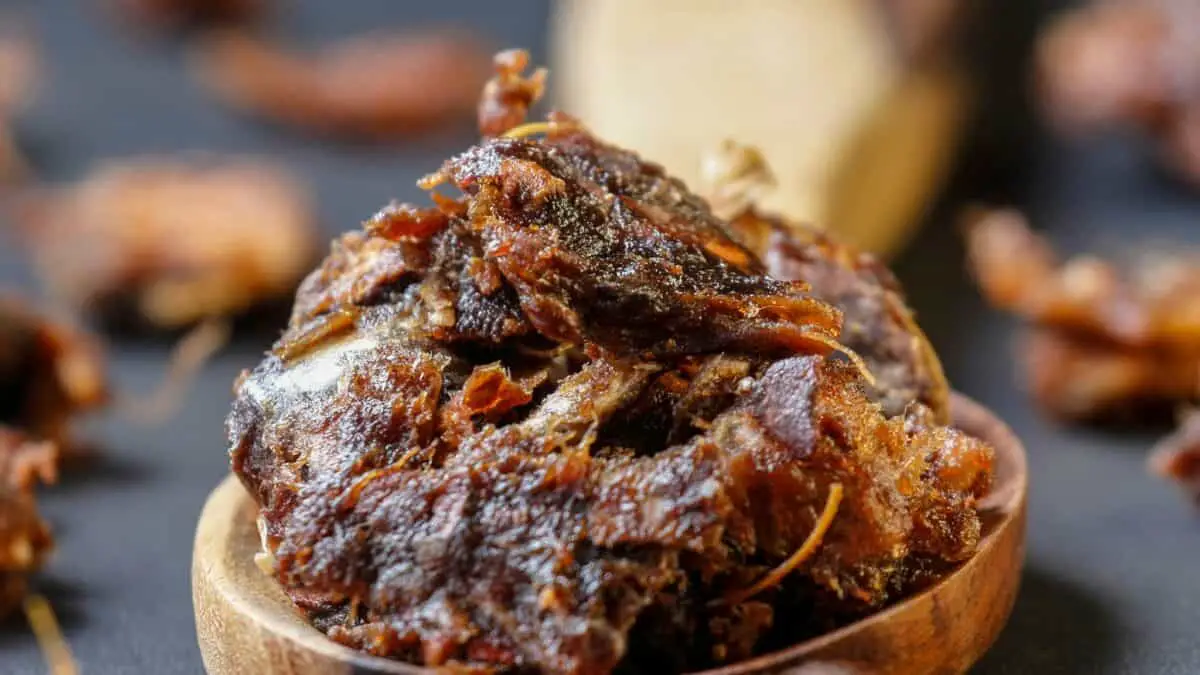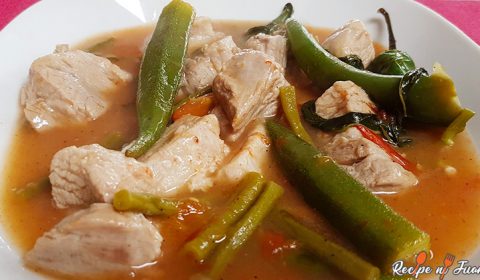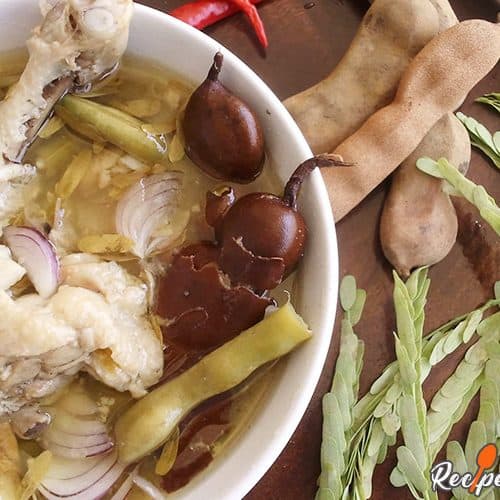3 Best Recipes With Sampalok Filipino Tamarind
Sampalok is a sour fruit that is often used in Southeast Asian cuisine. It has a tart, acidic flavor and is used to add zing to dishes.
Check out these recipes that use sampalok to add flavor and nutrition to your meal. You’ll love the way these dishes turn out – and you’ll love how good they are for you, too.


Check out our new cookbook
Bitemybun's family recipes with complete meal planner and recipe guide.
Try it out for free with Kindle Unlimited:
Read for freeIn this post we'll cover:
Best 3 recipes with sampalok
Sinigang na Hipon sa Sampalok

Also, as much as possible use the actual tamarinds (or sampalok) as the souring and not the store-bought tamarind mix. However, if you’re pressed for time, you can always fall back to the store-bought one.
Pour the extracted tamarind juice back into the pot and repeat this process until you are sure that the tamarinds are already juiced out well.
Sinigang na baboy

Boil fresh tamarind in a pot with a cup of water until it becomes quite mushy. Push a spoon against it to release any leftover juices after mashing with a fork and straining. Then, add it to the pot.
The best pork cuts for cooking sinigang are pork ribs because of the richness of flavor from the bones.
But just like with adobo, you can use just about any type of pork cut, like belly, loin, butt, and shoulder. Add the talong eggplant first and the sitaw last to keep it crunchy.
Sinampalukang manok

As the name suggests, sinampalukang manok translates to “chicken in tamarind broth.”
This sinampalukang manok recipe gives you detailed instructions on how to cook this sumptuous dish!

3 Best Recipes With Sampalok
Ingredients
- 100 g (3½ oz) tamarind pulp (see note)
- 250 ml (8½ fl oz/1 cup) boiling water
Instructions
- Place the sampalok pulp in a heatproof bowl and cover with the boiling water. Leave to stand for 15 minutes to soften, then mash to combine well (I use my hands).
- Strain through a sieve into a bowl, pushing the seeds to extract their liquid. Discard the solids.
- Add the sampalok mixture to the pan and cook for 5 minutes. Add things like horseradish and eggplant, and cook for 5 minutes, or until the eggplant is almost tender.
Is tamarind the same as Sampalok?
Tamarind and sampalok are the same fruit. Sampalok is the Filipino name and is used for cooking. The tamarind tree produces flowers, leaves, and bark that can be used in a variety of ways. Sampalok is a popular ingredient in many dishes, and it is also used to make medicine.
Is Sampalok spicy?
Sampalok is not spicy, but it is sour. It is used to add a sweet and sour flavor to food. It is often used in spicy dishes like sinigang, but the spiciness comes from siling labuyo or haba.
How do you preserve Sampalok?
You can preserve sampalok by wrapping it in cellophane or placing it in a resealable bag or container. You can also store it unwrapped in an airtight container. It will keep at room temperature for about 1 week or in the refrigerator for about 2 weeks.
Conclusion
Sampalok or Filipino tamarind is great for your dishes to get a sweet and sour kick.
Check out our new cookbook
Bitemybun's family recipes with complete meal planner and recipe guide.
Try it out for free with Kindle Unlimited:
Read for freeJoost Nusselder, the founder of Bite My Bun is a content marketer, dad and loves trying out new food with Japanese food at the heart of his passion, and together with his team he's been creating in-depth blog articles since 2016 to help loyal readers with recipes and cooking tips.
